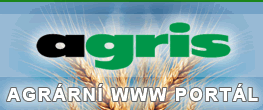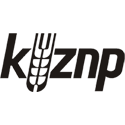The Week in Europe 29/09 - 05/10/00
12.10.2000 | Euroskop
Reforming EU for enlargement
The EU could be ready to welcome new members from the start of 2003, if December's Nice summit adopts the necessary reforms, Commission President Romano Prodi told MEPs on 3 October. The Biarritz summit on 13-14 October must provide extra impetus to keep the process of enlargement on track, he said. This also involves the institutional reforms that are essential for effective decision-making in an expanded Union. Prodi also argued for the role of the High Representative (for Common Foreign and Security Policy) to be integrated into the Commission. The present system confuses the roles of the Council and the Commission and could exclude the Parliament from effective power, he said. Overall, the Community model had proved its worth; the intergovernmental model would lead to a talking shop or a bureaucracy devoid of democratic scrutiny. [Background text: SPEECH/00/352]
Prosecutor post to tackle fraud?
The EU needs an independent prosecutor to tackle fraud more effectively, the Commission suggested on 29 September. The prosecutor would oversee investigations into cases affecting the Community's interests, gathering and presenting relevant evidence from anywhere in the EU. This approach is intended to overcome difficulties posed by the need to deal with different legal systems in each Member State. The proposal, including a new Treaty article setting out the role of the prosecutor, will be presented to the Intergovernmental Conference, which is considering institutional reforms. [Background texts: IP/00/1081 & DOC/00/27]
· The Commission has also proposed a paragraph for the Treaty to boost protection for democratic values. It would allow EU countries to engage in preventive political dialogue with a Member State where there was the threat that these principles (already contained in Article 6) might not be respected. [Background text: IP/00/1116]
Prodi on Denmark's euro vote
Commission President Romano Prodi said that he regretted the Danish 'no' in the referendum on the single currency, but respected the fact that it had involved a healthy debate. He welcomed the intention of the Danish authorities to maintain the same conditions for the participation of the krone in the exchange rate mechanism. Prodi said he believed Denmark would continue its commitment to economic policy based on macroeconomic stability, shadowing euro zone policies and objectives. The fundamental indicators of the euro zone were robust, and the euro had established itself as a global currency in the financial markets, he observed. [Background text: IP/00/1077]
Telecommunications Council
A proposal to open local telephone networks to competition from 1 January 2001 - offering the prospect of cheaper high-speed Internet access and a wider range of telecom services - was endorsed by the Council on 3 October. This move to 'unbundle the local loop', the wires to subscribers' homes, is expected to strengthen competition in the sector and speed up the delivery of new technologies. The proposal, which was a priority of the eEurope Action Plan agreed at a summit in June, will now be considered by the European Parliament later this month. The Commission also told ministers of its progress towards establishing the '.eu' domain name on the Internet. It is working on a Communication and draft proposal to set up a registry to run the .eu top-level domain for Internet addresses. Finally, the Member States gave their responses to a proposal to open up the market for postal services to greater competition. Commissioner Bolkestein noted that the Lisbon European Council in March had called for the liberalisation of the postal market to be accelerated. He pointed out that, based on the date of 2003 for 20% liberalisation (set out in the proposal), this step would have taken 14 years since ministers first called for action at a meeting at Antibes in 1989.
EU strategy for oil supplies
Five lines of action to develop an EU strategy for oil supplies have been set out in a paper tabled by the Commission on 4 October. The Communication, which will be discussed at the Biarritz summit on 13-14 October, recommends the following: a more open dialogue with oil-producing countries; improvements to market mechanisms; greater consistency between national policies, with a stronger common approach; a more diversified and more economic energy policy; and a more sustainable transport policy. Competition policy in the motor fuel sector was examined by the experts from the Member States at a meeting with the Commission on 29 September. They agreed to explore ways of ensuring that existing laws were used effectively to combat any price-fixing and to clamp down on anti-competitive practices. [Background texts: IP/00/1090 & IP/00/1115]
ECOFIN Council
Stricter laws against money laundering were agreed at the ECOFIN Council on 29 September. The meeting reached political agreement on the two main questions that remained. First, ministers decided that lawyers and other legal professionals should have to inform authorities of suspicions of money laundering when assisting clients in specified actions. Second, the definition of 'serious crimes' would include offences that could generate substantial proceeds and are punishable by a severe prison sentence. A much wider range of criminal activities will be covered by this proposal than the 1991 Directive it updates; this concentrated on the proceeds of drug-trafficking. Action to combat international money laundering will be discussed further at a meeting of finance and justice ministers on 17 October.
Easier travel with your pet
People could travel with their pets more easily in the EU, under a Regulation proposed on 3 October by the Commission. Cats and dogs would require an identifying tattoo or microchip, along with proof they had been vaccinated against rabies. If coming to the UK, Ireland or Sweden - which have long been free from rabies - an additional antibody test for rabies may be required. Cats and dogs from countries outside the EU where rabies is widespread would be subject to extensive tests, and the UK, Ireland and Sweden would be free to impose a quarantine period. The rules would apply only to pets travelling with their owner or other responsible person for non-commercial purposes. Other species not liable to rabies, such as rabbits, guinea pigs, fish, birds, reptiles and insects, would not need health certificates to travel with their owners. The rules would make it more attractive for people to travel with their pets, and one set of rules would cover all the EU, said Commissioner David Byrne.[Background text: IP/00/1098]
Europe Against Cancer Week
'Eat 5!' is the theme of Europe Against Cancer Week (9-15 October), encouraging children to increase their intake of fruit and vegetables to five or more portions a day. Aimed at children aged 5-10 years and their parents, the campaign includes posters, booklets and bookmarks, which are being distributed to primary schools and other organisations, through NHS health promotion units.
Changes to banana regime
The Commission has proposed a tariff system for EU banana imports that is compatible with world trade rules. It combines transitional tariff quotas, to be managed on a first come, first served basis, with a move to a tariff-only system from 2006. The plans are consistent with World Trade Organisation rules, transparent and flexible. They should also put an end to a dispute that has already gone on for too long, said Commissioner Franz Fischler.[Background text: IP/00/1110]
· Sugar production quotas would be cut by 115,000t under plans put forward on 4 October. The system would then undergo a wider review in 2002. [Background text: IP/00/1109]
Diary Dates
European Parliament session 2-6 October Strasbourg
General Affairs Council 9-10 October Luxembourg
Environment Council 10 October Luxembourg
Informal European Council 13-14 October Biarritz
Enlargement
The European Parliament adopted on 4 October resolution on the Czech Republic's membership application to the European Union and the state of negotiations. Based on the report of Committee on Foreign Affairs the EP noted positively Czech government's progress in transposition of EU legislation, as well as the overall upward trend in the macroeconomic situation in the country. It called on the government to devote greater attention to environmental protection pertaining to water quality, industrial pollution, and nuclear safety, above all. It further stressed the need for continued reform of the judiciary and the enhanced effort to fight the sex tourism. The Deputies welcomed among other things also the joint plan of the Commission and the Czech Republic to develop and implement information strategy explaining to the general public the short-term problems and long-term benefits of the EU enlargement. (Full text of the resolution is available here, the report was published under the number A5-0245/2000.)
Další články v kategorii
- Souhrn událostí uplynulého dne 22. 12. 2025 (23.12.2025)
- Letos se objevilo ve velkochovech deset ohnisek ptačí chřipky, stejně jako loni (22.12.2025)
- Ministerstvo životního prostředí vydalo poslední Věstník v roce 2025 (22.12.2025)
- Zvěřina ze střediska na Mostecku táhne, zájem je o divočáka na guláš (22.12.2025)
- Peněženku moc nešetří, čas ale ano. Češi cukroví čím dál víc kupují (22.12.2025)
- Předvánoční víkend někteří věnují uzení masa (22.12.2025)

 Tweet
Tweet





